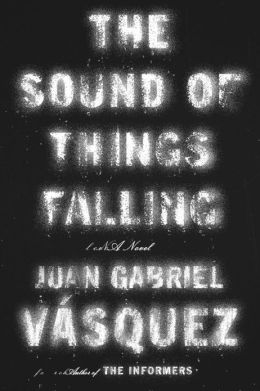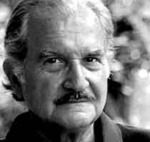 On a Saturday night in East Harlem or the Bronx, N.Y., Cesar and Nestor Castillo would perform songs from their homeland of Cuba. Clubgoers would mingle as Cesar sang and played the drums and Nestor performed the trumpet, and life’s troubles would disappear as they danced into the night.
On a Saturday night in East Harlem or the Bronx, N.Y., Cesar and Nestor Castillo would perform songs from their homeland of Cuba. Clubgoers would mingle as Cesar sang and played the drums and Nestor performed the trumpet, and life’s troubles would disappear as they danced into the night.
Then the sun would rise and reality would set in.
The lives of the Castillo brothers are depicted in The Mambo Kings Play Songs of Love (HarperPerennial) by Oscar Hijuelos. Released in 1989, the book won critical acclaim and Hijuelos become the first Latino to win the Pulitzer Prize for Fiction. And, perhaps more significantly in the realm of pop culture, it became a 1992 movie that made Antonio Banderas a star in the United States.
The brothers immigrated from Cuba to New York in the 1950s. Working by day, they play by night, getting gigs around the East Coast, releasing albums and landing a spot on I Love Lucy.
Hijuelos’ writing comes alive when he describes the brothers’ performances.
“He’d get up on the stage, dancing before the microphone while his musicians took the music forward. The glory of being on a stage with his brother Nestor, playing for crowds of café-society people who jumped, bounced, and wriggled across the dance floor. While Nestor soloed, Cesar’s heavy eyelids fluttered like butterfly wings lilting on a rose; for drum solos his hips hook, his arms whipped into the air: he’d take backwards dance steps, gripping his belt with one hand a crease of trouser with the other, hiking them up, as if to accentuate the valiant masculinity therein; outline of the big prick through white silk pantalones. Piano taking a ninth chord voicing behind a solo, he’d stare up into the pink and red spotlights, giving the audience a horse’s grin. Woman in a strapless dress dancing a slow, grinding rumba, staring at Cesar Castillo. Old woman with her hair coiffed upward into a heavenly spiral, starting at Cesar. Teenage girl, Miss Roosevelt High School Class of 1950, thin-legged and thinking about the mystery of boys and love, staring at Cesar Castillo. Old ladies’ skin heating up, hips moving like young girls’ hips, eyes, wide open with admiration and delight.”
Cesar is the definition of machismo. He almost seems defined by his “big thing” in the book’s frequent depictions of his sexual conquests. He devours sex as much as food and alcohol.
Nestor has a stable family life, but he’s more melancholy and introverted.
“Nestor tried, heaven helped him … After six years in the United States, he was still living with a growing dread of things. It wasn’t that he feared one thing in particular; he just had the sense that things weren’t going to work out, that the sky would fall in and lightning would strike him as he walked down the street, that the earth might open up and swallow him.”
Hijuelos is such a natural and beautiful writer that the book is easy to read, but sometimes it drags on too long. (We get it. Cesar likes to have sex.)
But as the book ends, Cesar realizes how his life has taken a toll on his body and his soul.
“The thing about one’s body coming apart was that, if anything, you felt more.”
And that’s the brilliance of Hijuelos’ writing — he can make you feel like you’re dying or dancing.
 More about Oscar Hijuelos: Hijuelos, whose parents immigrated from Cuba to New York, also wrote the books Our House in the Last World, Mr. Ives’ Christmas, Empress of the Splendid Season and Dark Dude. His most recent book is his 2011 memoir, Thoughts Without Cigarettes.
More about Oscar Hijuelos: Hijuelos, whose parents immigrated from Cuba to New York, also wrote the books Our House in the Last World, Mr. Ives’ Christmas, Empress of the Splendid Season and Dark Dude. His most recent book is his 2011 memoir, Thoughts Without Cigarettes.
Source: I checked this book out of the library.
This book is part of my series on classic Latino novels. Up next: Manuel Puig’s Kiss of the Spider Woman.
 Shy, the main character in Matt de la Peña’s The Living (Delacorte), is not having a good week.
Shy, the main character in Matt de la Peña’s The Living (Delacorte), is not having a good week. More about Matt de la Peña: de la Peña is the author of four other novels, including Mexican White Boy, Ball Don’t Lie (which was made into a 2008 movie), We Were Here and I Will Save You. He lives in Brooklyn, N.Y.
More about Matt de la Peña: de la Peña is the author of four other novels, including Mexican White Boy, Ball Don’t Lie (which was made into a 2008 movie), We Were Here and I Will Save You. He lives in Brooklyn, N.Y.

















